The Centre for Interdisciplinary Research on Montréal (CIRM) is now under bi-faculty leadership! In addition to its original affiliation with the Faculty of Arts, CIRM is now attached to the Faculty of Engineering at McGill University. Nik Luka, CIRM Interim Director from 2020 to 2021, joins Pascal Brissette at the head of the centre. This change was made possible with the collaboration of Deans Mary Hunter and Jim Nicell.

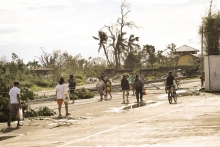
November 24, 2021 | RN-WPS Youth Advisory Board member Muzna Dureid explains why Canada should modernize its immigration policy to respond to people displaced by climate change.
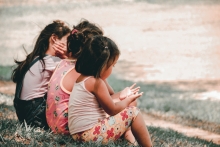
March 13, 2021 | Xuan Thuy Nguyen and Deborah Stienstra argue for recognizing the lingering impacts of colonialism and imperialism in producing disability and impairment in the South, while suggesting new ways of engaging with disabled girls and women through the use of inclusive, decolonial, and participatory methods.

Jess Reia recently concluded their BMO postdoctoral fellowship with the Centre for Interdisciplinary Research on Montréal (CIRM). They are now undertaking new responsibilities as an assistant professor in the School of Data Science at the University of Virginia.
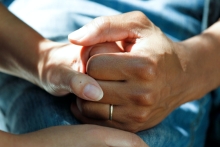
October 24, 2019 | Written by Dr. Siobhan Byrne, the objective of this article is to demonstrate how feminist approaches can provide a new language of both power and sharing to illuminate pathways through the ‘exclusion amid inclusion’ dilemma in power-sharing theory.

March 29, 2021 | Written by Dr. Julia Zulver, this article focuses on the Alianza de Mujeres Tejedoras de Vida, an association of women in Putumayo who mobilized for peace and women’s rights during Colombia’s armed conflict.
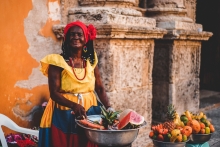
July 2, 2021 | Dr. Julia Zulver writes about The Asociación de Mujeres Afro por la Paz (Association of Afro Women for Peace—AFROMUPAZ), an organization of displaced Afro-Colombian women now based in Bogotá. The organization represents a differential brand of feminism in the face of historical and ongoing violence and provides community, support, and employment opportunities for dozens of women and their families.
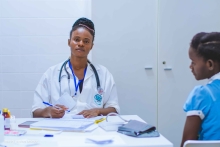
November 24, 2020 | Through this conversation between anthropology, law, and feminism, Tatiana Sanchez Parra and Teresa Fernandez-Paredes hope to shed some light on the opportunities and challenges of addressing a more comprehensive notion of reproductive violence in contexts of war and political transitions.

The Data for Society Hub (DSH) teams is proud to present the brand-new website of this project led by McGill University’s Centre for Interdisciplinary Research on Montréal (CIRM).
Here you will find a detailed overview of the DSH’s mission and structure, its three modules, resources on governance issues and data science, as well as news and publications on the progress of the work.
Happy browsing!

November 3, 2021 | As the 26th UN Climate Change Conference takes place in Glasgow, Maryruth Belsey Priebe and Tevvi Bullock ask is there adequate attention to gender in urban-climate-conflict discussions, pledges, and policies? Their blog is evidence of why the gender-climate-security nexus is critical for countries to be better prepared to deal with climate change.

McGill University scientists have developed a new system for sharing the enormous amount of data being generated by the CHIME radio telescope in its search for fast radio bursts (FRBs), the puzzling extragalactic phenomenon that is one of the hottest topics in modern-day astronomy.

Over the last year, the Max Bell School's Centre for Media, Technology and Democracy been building out a research program on kids & tech to explore a range of policy implications related to data governance and children's rights, ed-tech, school surveillance, targeted ads, kids content, gender and mental health.
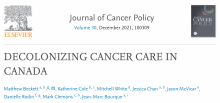
Highlights
- Cancer incidence and mortality in Indigenous peoples of Canada are increasing
- These populations face modifiable risk factors and lack of access to care
- Indigenous cancer care has been jurisdictionally complex and ambiguous
- Successful initiatives must be locally contextualized, with Indigenous leadership

March 1, 2020 | Children ‘born of war’ are increasingly recognized as a particular victim group in relevant international policy frameworks. Previous scholarship has primarily documented the challenges faced by their mothers as caregivers and as victims of wartime sexual violence, while a discussion on fathers to children ‘born of war’ is notably absent. Based on research in northern Uganda between 2016 and 2019, this article explores how some fathers seek to maintain a relationship with children born as the result of ‘forced marriage’ and assume partial or full responsibility for their wel

SUMMARY
The number of patients with cancer in Africa has been predicted to increase from 844 279 in 2012 to more than 1·5 million in 2030. However, many countries in Africa still lack access to radiotherapy as a part of comprehensive cancer care. The objective of this analysis is to present an updated overview of radiotherapy resources in Africa and to analyse the gaps and needs of the continent for 2030 in the context of the UN Sustainable Development Goals.
